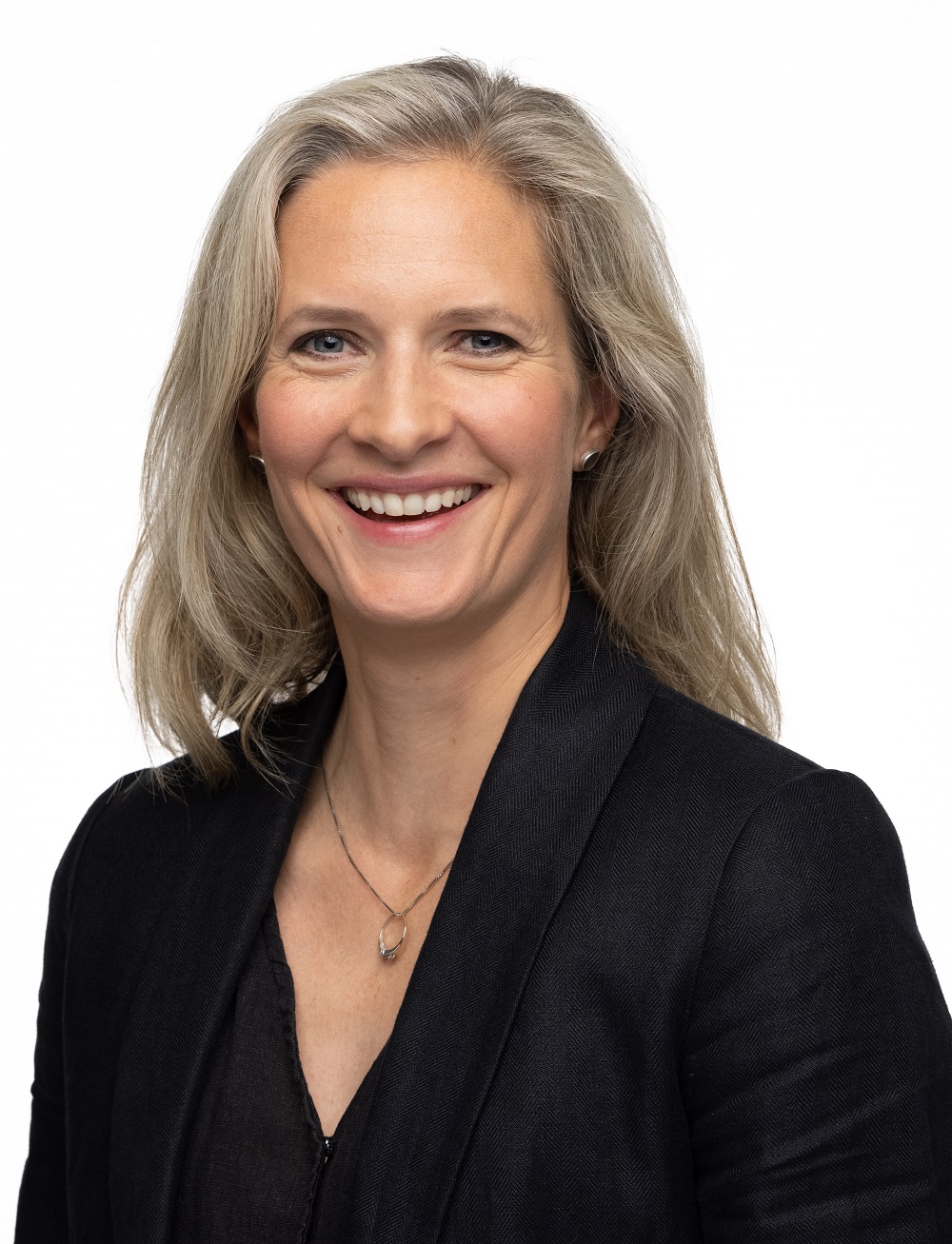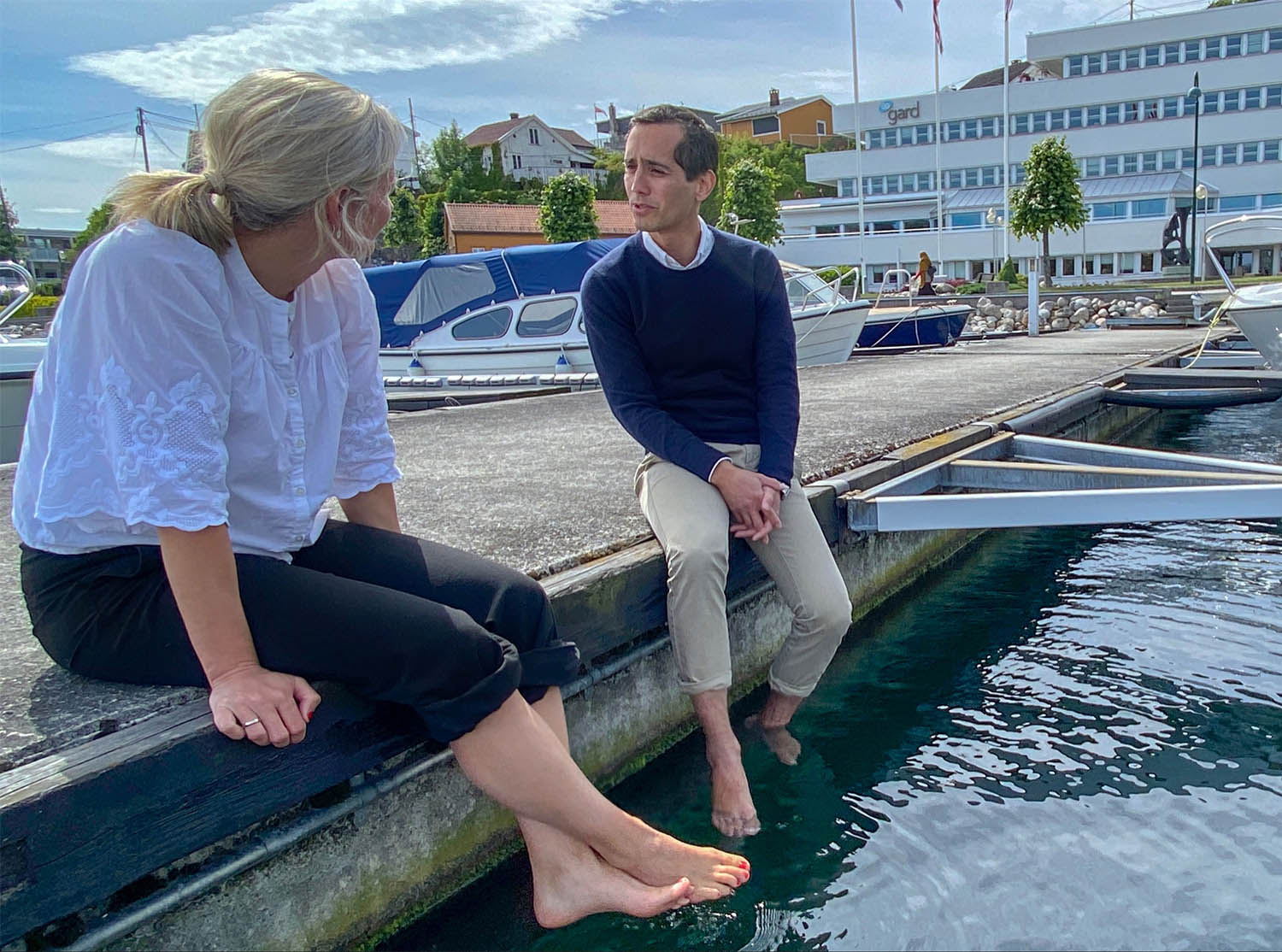With the Poseidon Principles for Marine Insurance having entered into force, many are asking what this initiative will mean in practice. How will emissions data be collected and what will they be used for? We spoke with someone who has answers.

The Poseidon Principles – what will it look like in practice?
Written by

Karoline Flåm
Senior Communication Executive

Sigvald Fossum
-
Published 22 June 2022
The Poseidon Principles for Marine Insurance (PPMI) formally came into effect in May 2022, and the Signatories are getting ready to begin their first climate alignment reporting exercise, meaning that they will publicly disclose the carbon intensity of their hull and machinery (H&M) portfolios.
As with all new initiatives, however, many are wondering about the practicalities. What will it mean for our clients? How will emissions data be collected and what will they eventually be used for? To get some answers, we sat down with Gard’s PPMI expert and Head of Analytics, Sigvald Fossum.
First of all, Sigvald, how did you first get familiar with the PPMI?
The Poseidon Principles caught my interest back in 2019, when they were launched by the banks. It seemed to me like a meaningful initiative, and I suppose I hoped that it would only be a matter of time before it also reached the marine insurance industry. Now, a few years later, here we are. Gard was invited into the PPMI drafting group in 2021, first through our CEO, Rolf Thore Roppestad, and our head of Sustainable Business, Live Jacob Sydness, and then later I also joined to bring in a practical and technical perspective.
How has the initiative been received by the industry so far?
The question for many of course, including myself, has been whether clients are in fact happy to share their fuel consumption data with us. Some will no doubt be skeptical, while others will be more relaxed. We need to assure everyone that the purpose is in fact altruistic. By being part of the PPMI, we can take part in an important initiative that aligns with and supports global decarbonization efforts. We think it’s only a matter of time before emissions reporting becomes the industry norm and even a requirement, and from our experience, it’s better to be proactive than to be forced into something later on.
What we have seen, is that many shipowners know the Poseidon Principles very well already and are quite comfortable sharing their data. I think it is fair to say that the banks have paved the way. In fact, several of the banks we have spoken to reported having received data for well over 90% of their portfolios.
Currently, only nine insurers have signed the initiative. Why haven’t more players come onboard?
We are only at the beginning stages, and we are confident that more insurers will follow. Remember that when the Poseidon Principles for banks were first launched, they only had six members. Since then, they have grown to 28 Signatories, and they are now covering more than 50 percent of the global ship finance portfolio. What starts out small can grow and have a big impact.
A key feature of the PPMI is that members will have to disclose the carbon emissions of their H&M portfolios. But how is that going to happen in practice? Which data will be used and how will it be collected?
First of all, the Poseidon Principles is a framework that piggybacks the IMO DCS reporting so it will use the same data that is being used for IMO reporting. What will happen in practice, is that insurers will approach clients where they have claims lead on the H&M cover and ask for their fuel consumption data. Going forward, standard clauses will be included in all H&M policies allowing us to ask for this data each year, and until then, we will send data consent letters to each client serving the same purpose.
We have worked hard to ensure that this process will be as smooth and straightforward as possible from our end, but among Signatories (across banks and insurers) there are also great efforts to finetune the process. For instance, this year, a common reporting template will be introduced, and other streamlining and efficiency measures are also being looked into.
What about using modeled emissions data instead? Wouldn’t that be easier than having to approach each individual client for their data?
Yes, in theory. However, a core principle of the PPMI is accountability, meaning that we are expected to use verified, real, data. Besides, if different Signatories use different models, we risk ending up with different results for different ships, giving an inaccurate reflection of actual emissions. That could be solved by all Signatories employing the same model, but we also know that ships’ fuel mix will change in the years to come, so models will likely struggle to keep up with developments. We think it is important that we capture the real picture.
That said, this is an ongoing discussion, and it might be that the use of modelled data will suit certain settings or sectors that want to get involved but for practical reasons can’t. At this stage, the data collection process is the most demanding part of the reporting exercise – both for our clients and for us. We are very keen to find a better solution. This could come in different shapes or forms, including getting access to data from IMO DCS directly or a central repository for all Poseidon Principles data.
Once the data is collected, what will it be used for? Will fleets with higher emissions get higher insurance premiums?
The data will be analysed and disclosed on an aggregate level, focusing not on individual clients or specific fleets, but on our H&M portfolio as a whole. We will not report who our clients are or the vessels in our portfolio, but exclusively the climate alignment of our overall portfolio. We are not going to exclude members and clients based on this. The PPMI is not about targeting specific clients, it’s about working together and increasing transparency. Our company mission is to be supportive to shipowners in their decarbonisation journey rather than to impose anything on them.
And what about pricing?
When it comes to commercial decisions and pricing, we first need to fully understand and analyse the data before we can start exploring such possibilities. It is important that we understand KPIs before we implement them and we are not there yet.
So, the PPMI is still in its beginning stages. What are the likely developments or possible improvements of the initiative going forward?
First of all, we are hoping more Signatories will join the initiative. This is not a company-level initiative, it is about increasing transparency and moving the entire industry in the same direction. We want the PPMI to be an “inclusive framework” that all industry participants will feel is meaningful and find practical to work with. That is why we think it is important that Signatories can choose which trajectory to benchmark themselves against – either the IMO 50% trajectory or the Paris agreement 100% reduction. We have also, just like the banks, tried to work closely with fellow Signatories to make this as practical as possible by sharing thoughts, ideas and experiences. This process will continue as long as there is room for improvement. For instance, as mentioned earlier, the possibility of getting data directly from IMO DCS instead of approaching each individual shipowner has been a recurring topic. This is nothing new since the banks have also looked into this, but the more Signatories we get onboard, whether banks or insurers, the more we hope we can succeed.
How has it been working with the PPMI so far, Sigvald?
I have found a lot of motivation working with the PPMI, both because of the interesting people I have met and because colleagues are expressing how happy they are that Gard is taking part in this initiative. I think this is one of those things people look for in their employer, or a prospective one, in 2022.
Thanks so much for taking the time, Sigvald. And good luck with the first PPMI reporting process, I am sure we will hear more about it in the months ahead.
Thank you, Karoline, we look forward to getting started.
About the PPMI
The Poseidon Principles for Marine Insurance is a global framework to quantify and disclose the carbon intensity of insurers’ marine hull portfolios.
Signatories will annually report on the climate alignment of their hull and machinery portfolios, and benchmark themselves against two trajectories: one in line with the IMO’s Initial Green House Gas Strategy, where we see a 50% reduction of carbon emissions by 2050; and one in line with the Paris Agreement, with a 100% reduction of emissions by 2050.
The purpose is to support decarbonization and to provide a common tool to monitor progress over time.

Further reading:
Poseidon Principles for Marine Insurance enter into force - Gard
The Poseidon Principles – what do they mean for our... - GARD


